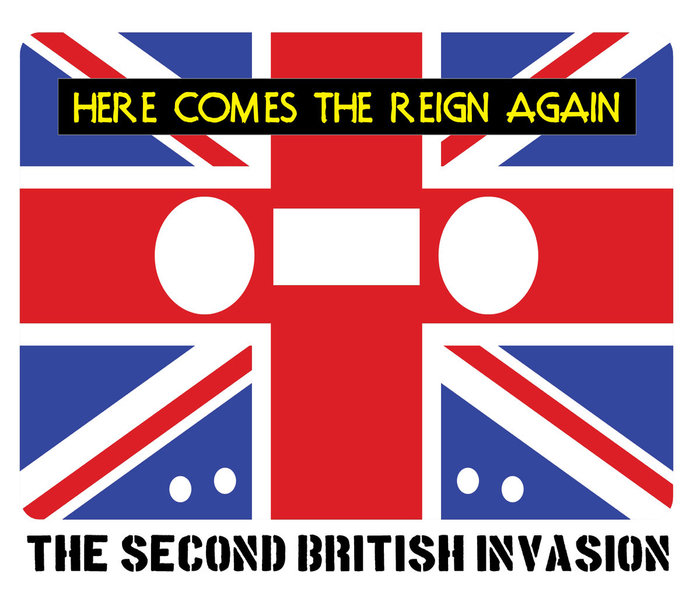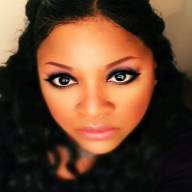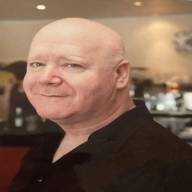Here they come again - The Second British Musical Invasion of the Usa - The 1980s.
The 1980s has a number of things to be remembered for. One of them would be was the decade that gave birth to the “Yuppies”. Yes them.
These young, upwardly mobile, and professional people sprung up during the early to middle 1980s.
It was largely due to the political “atmosphere” of the time that leads to their creation.
MICHAEL DOUGLAS - TALKING ABOUT THE FILM - WALL STREET MADE IN - 1987
The governments of both Ronald Regan in the USA; and also the government of Margaret Thatcher in the UK. Both governments had nearly worked towards achieving the same political agenda.
Both wanted to remove government interference from financial institutions and social platforms alike within their countries.
The removal of Industrial deregulation and tax cuts for industry and individuals alike was also phased in.
Margaret Thatcher stands against - Socialism
The rewarding of businesses and individuals alike for success that they had achieved for the nation/s sake was also phased in as well.
The thinking behind this was to allow the nation’s businesses and individuals to keep more of the money and bonuses that they earned.
With that, they were able to keep more of this money instead of it being taken away in the form of taxes from their respective governments.
The thinking was that it would encourage them to buy more goods and invest in businesses within their respective countries. Thus the resulting nation’s economic growth would “trickle down” and benefit everyone.
However, on the domestic front, Reagan’s economic plans didn’t run entirely smoothly. For instance - balancing the budget.
Huge increases in military spending - were not “righted” by spending cuts or tax increases elsewhere within the country.
By 1982, the United States was experiencing its worst recession since the Great Depression.
For instance, 9 million people were unemployed by November 1982. Businesses closed, families did lose their homes and farmers lost their land.
The same sorts of things were happening or did happen as well in the UK.
Union laws within the UK were deregulated by the UK government, which helped to free businesses and entrepreneurs from their powers; and thus stop hindering and stopping production.
However, as within the USA, the financial experts and other political factions within the UK were not impressed.
They felt that this political thinking and upheaval was going to lead to business failure and jobs being lost
Margaret Thatcher being heckled by Dennis Skinner - 1990
About her thoughts about "European currency" and Europe
However, this entrepreneurial political spirit that was within the “Air” allowed for the media, movie, and music industries to experiment and take chances.
For instance, at the movie theatres, the 1980s became known as the age of the blockbuster.
Movies such as “E.T.: The Extra-Terrestrial,” “Return of the Jedi,” “Raiders of the Lost Ark”, “Back to the Future”, "Trading Places", “The Terminator”, “Cocoon”, “Predator” and “Beverly Hills Cops” all appealed to moviegoers of all ages and made hundreds of millions of dollars at the box office.
Michael J Fox - BEING INTERVIEWED FOR HIS UK PREMIERE OF - BACK TO THE FUTURE FILM - 1985
The 1980s was also the heyday of the "teen movies". Movies such as “The Breakfast Club,” “Some Kind of Wonderful”, “Weird Science”, “Ferris Buellers day off” and “Pretty in Pink” are still popular today.
Within the USA, people watched within their homes TV sitcoms such as “The Cosby Show,” “Family Ties,” “Roseanne” and “Married…with Children” for instance.
Here in the UK, people watched similar TV sitcoms in their homes such “Butterflies”, “Just good friends”, “Only Fools and horses”, “To the Manor Born”, “Blackadder” and “Birds of a Feather” for instance.
The UK Sitcom called "Blackadder"
However, if there was the 2nd Invasion there must have been the 1st invasion.
And this did happen. The 1st British Invasion was a phenomenon that occurred in the mid-1960s when ROCKand POP MUSICacts from the UK, as well as other aspects of British culture, became popular in the USA.
Pop and Rock groups such as the Beatles, the Dave Clark Five, the Kinks, the Rolling Stones, Herman's Hermits, and The Whowere at the forefront of the invasion.
The Kinks - All Day and All of the Night - 1964 (Uk Release)
On October 29, 1963,The Washington Post published a story about the frenzy surrounding the rock/pop groupThe Beatles from the UK to the USA.
The Beatles performed at the Royal Variety Show (London, Uk) in November 1963, in front of theQueen Mother which sparked parked further interest in them in regard to the music and media industry.
Also in November 1963, a number of major American print outlets and two network television evening programs published and broadcast stories on the phenomenon that became known as "Beatlemania".
On December 10, 1963, CBS Evening News presenter Walter Cronkite, was looking for something positive to report.
He decided to re-run a story about "Beatlemania"that had been originally aired on the 22nd of November 1963, but it got shelved that night because of the assassination of US President John Kennedy.
After seeing the report, a 15-year-old, Marsha Albert of Silver Spring, Maryland, wrote a letter the following day to disc jockey, Carroll James at radio station WWDC asking, "Why can't we have music like that here in America?" (11th December 1963).

On December 17, 1963, James arranged for Miss Albert to come to the radio studio and introduce "I Want to Hold Your Hand" live on the air.
WWDC's phones lit up, and within the Washington, D.C. area, record stores were flooded with requests for a record they did not have in stock.
James went about to set the record for other disc jockeys around the country
sparking a similar reaction. On December 26th, 1963, Capitol Records released the record three weeks ahead of schedule.
The release of the record happened during a time when teenagers were on vacation which helped spread "Beatlemania" in the US.
DJ Carroll James of WWDC FM, USA being interviewed by WWDC/DC101's FM, USA - Young Dave Brown and Ernie Kay on December 17, 1983.
(Please click on the YouTube video below to hear this Interview)
On December 29th, 1963, The Baltimore Sun newspaper, reflecting the dismissive view of most adults, added, "America had better take thought as to how it will deal with the invasion.
Indeed a restrained 'Beatles go home might be just the thing."
That comment proved prophetic. In the next year alone, the Beatles producerGeorge Martinsaid it "aroused the kids' curiosity".
In the middle of January 1964, "I Want to Hold Your Hand" appeared suddenly, then vaulted to the top of nearly every top 40 music survey in the United States, launching the Fab Four.
"I Want to Hold Your Hand" went to number one on January 25, 1964.
On February 7, 1964, the CBS Evening News ran a story about the Beatles' arrival within the United States arrival that afternoon in which the correspondent said, "The British Invasion this time goes by the code name - "Beatlemania"
On Sunday, February 9, 1964 - The Beatles appeared on The Ed Sullivan Show. (*Please go to YOUTUBE - and type into the search point - the above message, and you will see the performance by The Beatles on that day).
Not many of the 73 million viewers who watched the event on the 9th of February 1964 would fully understand what impact the band they were watching would have.
By the 4th of 1964, the Beatles held the top five positions on the USA BillboardHot 100 singles chart, and to date, no other act has simultaneously held even the top three.
The group's massive chart success, which included at least two of their singles holding the top spot on the USA Hot 100 during each of the seven consecutive years starting with 1964, continued until they broke up in 1970.
After the demise of the Beatlesand the other groups from the period in regards to their musical output. It was thought that this would never happen again.
Many stated that it was a "fluke".
However, it did happen again - only this time we had to wait another 20 years to see this come to fruition.
In regards to the music industry at the time, the term that became known as the “Second British Invasion”
This term refers to the many acts that came from the UK from 1981 to 1989 to the USA.
Music videos were not the staple diet of the USA music-loving nation until at least 1981.
In fact, it was Europe and more so the UK that was weaned on music videos before the USA.
Also, Pop and Rock music acts within the USA had declined somewhat due to the magnitude of Disco music, which finally succumbed by the year 1980.
Many of the UK acts that were making music at the time came out of the Punk Rock and rock music Phase; and Urban Acts from the UK came from the Disco music and Jazz/Funk musical movements within that period.
When the Music TV Channel that was/s – MTV was created in August 1981.
The original purpose of MTV was to be a "music television", playing music videos 24 hours a day, seven days a week, guided by on-air personalities known as VJs, or video jockeys

With this being a fact – MTV - had little choice but to play a large number of music videos from British 2nd Invasion acts – which had accompanied their music and music videos.
The first music video shown on MTV was The Buggles' - "Video Killed the Radio Star" originally only available to homes in New Jersey, USA.
The Buggles - "Video killed the radio star" - 1979 (Uk release)
I remember this time quite very vividly indeed. I was attending college at the time. And it seemed that this single was everywhere.
It was on all UK Radio and Television that I can tell you. It seemed to leapfrog over from the craze that was huge at the time within the UK.
The return of the music was – Ska and Rocksteady. It was known this time as – “Two Tone”.
Madness - "The Prince" - 1980 on Top the Pops
The single and music video of -The Buggles' - "Video Killed the Radio Star" - took the music industry by surprise.
As many of the records that got viewed and heard on MTV were soon being asked to be played up and down the land within the USA.
The buildup of this impending invasion was identified as early as 1981. As more and more UK-based music was making more and more inroads within the US music charts.
On July 3, 1982, The Human League's - "Don't You Want Me" started a three-week reign on top of the USA Hot 100 charts.
This song got a considerable boost from MTV airplay, and has been described by many within the USA music industry as "the moment that the Second British Invasion, kicked off”.
The Human League - Don't you want me baby - 1981 (Uk Release)
By September 1982, the arrival of MTV within the media capitals of New York City and Los Angeles via the USA led to positive publicity for the company.
By the Autumn of 1982, these UK music tracks kept coming, coming, and coming.
From A Flock of Seagulls - "I Ran (So Far Away)", the first successful song that owed almost everything to video, had entered the USA Billboard Top Ten. Duran Duran's glossy videos of the time would come to show the power of MTV.
In 1983, Billy Idol became an MTV staple together with songs such as "White Wedding" and "Eyes Without a Face" and had commercial success with his second album Rebel Yell with the top-selling single from the same album called “Rebel Yell”.
Billy Idol - "Rebel Yell" - single
Pop/rock songs that topped the charts included Bonnie Tyler's - "Total Eclipse of the Heart", John Waite's "Missing You", and Robert Palmer’s "Addicted to Love".
“New Music” as it became known within the USA (but known as in the UK – 2ND Invasion music); was a term used by the music industry to describe young, mostly British, androgynous, and musically diverse artists such as...
Culture Club, Yazzo, Depeche Mode, Spandau Ballet, Visage, Abc, Heaven 17, and the Eurythmics continue to thrive within the USA.
Yazzo - "Don't go" - single - 1982 UK release
It must be added that the UK Soul, Rnb, and Brit Funk acts such as Central Line, Junior Giscombe, Level 42, Linx, Beggar, and Co, Imagination, Loose Ends, Lisa Stansfield, SADE, UB40, and Aswad all contributed to this success just as successfully, and had a good following as well at the time.
Junior Giscombe - "Mamma Used to Say" - 1981
SADE - Your love is King - 1984
Another factor as to why the 2nd Invasion of British music made such an impact so quickly was through the tv show called - Miami Vice.
Miami Vice was created on such a level that we saw Movie production techniques, and Movie production sounds in creating a weekly TV SHOW for us every week.
The clothes, the cars, the girls, the fashions, the sunglasses, the boats and yachts, and even the colours used were all planned down to the last detail.
And the last part of that jigsaw is the music. This is where the 2nd British invasion artists got a huge hand up. This show used a lot of music from those artists.
“Miami Vice” was an American television crime dramaseries created by Anthony Yerkovichand produced by Michael Mannfor NBC.
The series starred Don Johnsonas James "Sonny" Crockettand Philip Michael Thomasas Ricardo "Rico" Tubbs, as two Metro-Dade Police Departmentdetectives working undercover in Miami, USA.
Unlike other standard police shows, “Miami Vice” drew heavily upon the1980s New Wave (2nd British Invasionculture and music).
The show became noted for its addition of music and visual effects. It is still to this day recognized as one of the most influential television ever.
In keeping with the show's title, most episodes focused on combating drug trafficking and prostitution.
Episodes often ended in intense gun battles, claiming the lives of several criminals before they could be arrested. The choice of music and cinematographyborrowed heavily from the emerging New Wave (2nd British Invasionculture and music)culture of the 1980s

AsLee H. Katzin, one of the show's directors, stated, "The show is written for an MTV audience, which is more interested in images, emotions, and energy than plot and character and words."
Miami Viceis noted for its use of countless pop and rock hits of the 1980s and the distinctive, synthesized instrumental music of Jan Hammer.
While other television shows used made-for-TV music, Miami Vicewould be looking to spend around $10,000 or more per episode to buy the rights to original recordings.
Getting a song played on Miami Viceusually meant that an artist would receive a boost for themselves and the record labels.
Some newspapers, such as USA Today, would let readers know the songs that would be featured each week.
The clothes worn onMiami Vicehad a significant influence on men's fashion around the world and not just in the USA. They popularized, if not invented, the "T-shirt under Armanijacket"-style; and popularized Italian men's fashion in the USA. Don Johnson's typical attire of Italian sport coat, T-shirt, white linen pants, and slip-on sockless loafers became a hit.
Even Crockett's perpetually unshaven appearance sparked a minor fashion trend, inspiring men to wear a small amount of beard stubble, also known as thefive o'clock shadow(or "designer stubble") at all times.
Miami Vice- 30 years plus later Click on the video below
In an average episode, Crockett and Tubbs wore five to eight outfits, appearing in shades of pink, blue, green, peach, fuchsia, and the show's other "approved" colors”.
Designers such as Vittorio Ricci, Gianni Versace, and Hugo Bosswere consulted in keeping the male leads looking trendy.
Crockett also boosted Ray-Ban'spopularity by wearing a pair of Ray-Ban Wayfarer(Model L2052, Mock Tortoise), which increased sales of Ray-Bans to 720,000 units in 1984.
Probably one if not the most famous episodes to come from the Miami Vice series is called – “Brothers Keeper” – (16th September 2016 – within the USA), which allowed for that episode to gain cult status.
The song that was played during a particular gun battle within the episode was by Phil Collins – “In the Air Tonight”.
It’s an episode that many who saw claim it's one of the best in the entire show. Phil Collins – “In the Air Tonight” gained even more popularity as the song rose through the charts because of its inclusion in this episode.
Phil Collins – “In the Air Tonight” - being used within the episode - Brothers Keeper - 1984
Many of the Second UK Invasion artists started their careers within the Punk Rock music era and desired to bring change to a wider audience, resulting in music that, while having no specific sound, was characterized by a risk-taking spirit within the context of pop music.
Rock-oriented acts that knew how to use videos, such as Def Leppard, Big Country, and Simple Minds, became part of the new influx of music from Britain.
Early in 1983 radio consultant Lee Abrams advised his clients at 70 album-oriented rock stations to double the amount of New Music (Second UK Invasion artists) they played.
Newsweek magazine ran an issue that featured Annie Lennox and Boy George on the cover of its issue with the caption Britain Rocks America – Again.
While Rolling Stone magazine would release an "England Swings" issue in November 1983.

Culture Club and Duran Duran created "hysteria" similar to Beatlemania during the 1st British Invasion.
At the Second Invasion's height, during a three-month period, the UK acts claimed eight consecutive Hot 100 1 hits, from - Simple Minds' "Don't You (Forget About Me)" through to Tears for Fears' "Shout".
For instance, Simple Minds - "Don't You (Forget About Me)" (which was featured in the movie called “The Breakfast Club”) was the first of 3 x British acts to provide the theme songs for the known “Brat Pack movies”.
Trailer for the film called - The Breakfast Club
The other songs were John Parr's Hot 100 1 charting single "St. Elmo's Fire" (which featured in the movie called “St. Elmo Fire") and The Psychedelic Furs -"Pretty in Pink” (which featured in the movie called -"Pretty in Pink”).
U.S. radio stations that catered to black audiences also played Second UK Invasion acts. Music critic Nelson George added to this "reverse crossover" that the novelty of this music went down well on the dance floors.
Another UK music journalist, Simon Reynolds, added that, just as in the 1st British Invasion, the use of Black American influences by British acts such as Wham!, Eurythmics, Culture Club, and Paul Young helped to spur their success.
(The Courier Newspaper (USA) - June 8th, 1984 - The 2nd Invasion - How it happened)
During the Second British Invasion, established British acts such as Queen, David Bowie, Paul McCartney Phil Collins, and Elton John saw their popularity increase.
Counting his work with Genesis, Phil Collins had more top 40 hits on the USA Billboard Hot 100 chart during the 1980s than any other artist.
"The guys were so beautiful. Not handsome in the classic "movie star" way, but pretty—lush lips, cheekbones a mile-high, porcelain skin—and they all knew how to apply make-up better than most women I knew" - Nina Blackwood - MTV VJ.
All of this activity and the unusually high turnover of artists in the charts caused a sense of upheaval in the United States.
Commentators in the mainstream media credited MTV and the British acts with bringing color and energy back to pop music that had been missing since the 1960s.
while rock journalists were generally hostile to the phenomenon because they felt it represented image over the content and that the "English haircut bands" had not paid their dues.
Great Britain initially embraced what was called "New Pop". However, by 1983, the song by the UK Punk group called Orange Juice – "Rip It Up" and "kill ugly pop stars" graffiti were expressions of both a backlash against the Second Invasion groups and nostalgia for Punk music.
Orange Juice – "Rip It Up" Official Video - 1983
"Instant Club Hit (You'll Dance to Anything)", which became an underground hit for Philadelphia punk group The Dead Milkmen, took a satirical shot at the American subculture that followed British alternative/new wave.
"I hear the radio, it's finally gonna play new music you know the British invasion but what about The Minutemen, Flesh Eaters, D.O.A., Big Boys, and the Black Flag were the last American bands to get played on the radio please bring the Flag, please bring the Flag glitter disco synthesizer, night school all the noble savage drum drum drum"
American Punk Band X from their 1983 song I Must Not Think Bad Thoughts. According to UK music journalist Simon Reynolds, a majority of acts that signed to independent labels in 1984 mined various rock influences and became an alternative to the Second Invasion.
Reynolds named The Smiths and R.E.M. as the two most important "alt-rock acts" among this group noting that they "were eighties bands only in the sense of being against the eighties".
As the period of the 2nd Invasion of the 1980s wore on, American rock, heavy metal, and pop music acts learned how to market themselves using videos and making catchy singles.
Martin Fry of ABC added "The reality was that Madonna, Prince, and Michael Jackson did it better, bigger, and more global than a lot of British acts."
Martin Fry - The lead singer of Abc - (The one dressed in the gold suit)

From 1983 to 1985, several hair metal acts dented the U.S. charts and received some airplay on MTV, but heavy metal was still seen as a genre limited in popularity to teenage boys.
In the spring and summer of 1986, acts associated with the Second UK Invasion music acts continued to have chart success, with eight records reaching the USA Hot 100's summit.
That fall Bon Jovi's third album Slippery When Wet topped the Billboard 200 and spent eight non-consecutive weeks there, and the leadoff single "You Give Love a Bad Name" displaced The Human League's - "Human" atop the USA Hot 100.
Such developments eventually led to decreased visibility of New Music/Second UK Invasion music.
Human League - Human - 1986
By 1987, "New Music" (2nd British Music Invasion music) was now only being exposed on MTV via The New Video Hour within the station.
But was that it? Over and out for the Uk? Well, if I get the time to do another one of these types of articles. I will show you otherwise.
I hope that you enjoyed the present article. Please let me know what you feel about it. It brought back some wonderful memories to me - especially seeing again those old "TOP OF THE POPS" videos.
Well that's all folks for me now anyway
Please CONTACT US me here. If you want to discuss anything mentioned here in this article.
Dj Mistri and the Electric Soul Show © www.electricsoulshow.com











